Confronting Economic Injustice Head-On
Recently, I returned to visit the Salinas Valley, the “salad bowl of the world,” in California’s central coast, where I had lived prior to the pandemic. As I drove past its fields, the precise symmetry of crop rows grabbed my eyes like an optical illusion; the straight rows converged on the hills that rose in the distance. Periodically, people and trucks filled the empty geometric spaces, shattering the illusion. Farm workers hunched over while gathering strawberries. Then, with their boxes full, they ran at full speed under the heat of the midday sun to deliver the goods that would eventually make their way to supermarkets around the world. Thus they fulfilled their roles in a global supply chain. Years ago, I began to wonder how I could be in right relationship with these workers, and I wondered the same thing about the people I was on my way to meet.
I was driving to a prison in Soledad, California, and had often passed such fields and workers before. I was volunteering with the Alternatives to Violence Project (AVP), a 20-hour experiential workshop rooted in affirmation, community building, and play. In my previous job in the mental health field, a senior coworker impressed me with this advice: move toward suffering. For example, if you see someone struggling, find a way to move toward them; don’t just leave them to suffer alone. For as long as I could remember, whenever I saw an unhoused person sitting on the sidewalk with a sign asking for change, it had been all too easy to turn my head away and walk past. That visceral aversion was something to investigate.
My goal to move toward suffering led me to live in a Catholic Worker community in Salinas, where I spent time with unhoused people. The people incarcerated in prisons soon showed up on my radar as well. While living at the Catholic Worker, I found grounding and spiritual growth at Salinas’s Live Oak Meeting, which provided me with an opportunity to spend time with incarcerated people through AVP, and I soon began facilitating workshops in prison alongside incarcerated facilitators.
Previously, if you asked me to share my spiritual autobiography as Friends do, I might have described a trajectory of growing up without religious or spiritual community, exploring different faith traditions, serving with various Catholic Worker communities, living in Buddhist practice centers, and eventually making my way to Quaker meetings. Spiritual practice carried a sense of cultivating healthy thoughts, speaking kindly, and loving my (immediate) neighbors. Now the narrative of participating in particular communities and working on my individual growth has shifted to recognizing and being called to work with wider material concerns, including the ecologies within which we are enmeshed. Prior to my “spiritual” life, I received an undergraduate degree in economics. Over time, my attention has moved back toward learning about topics like global debt structures and monetary policy, as they’re deeply related to material and ecological concerns. More recently, I began working for Right Sharing of World Resources, a Quaker nonprofit that shares these interests. The etymological root of the word economics means “the way to run a household,” so economics isn’t so remote from these concerns: we’re all a part of the global household, including those working the fields and incarcerated people, who are also often performing some kind of work.
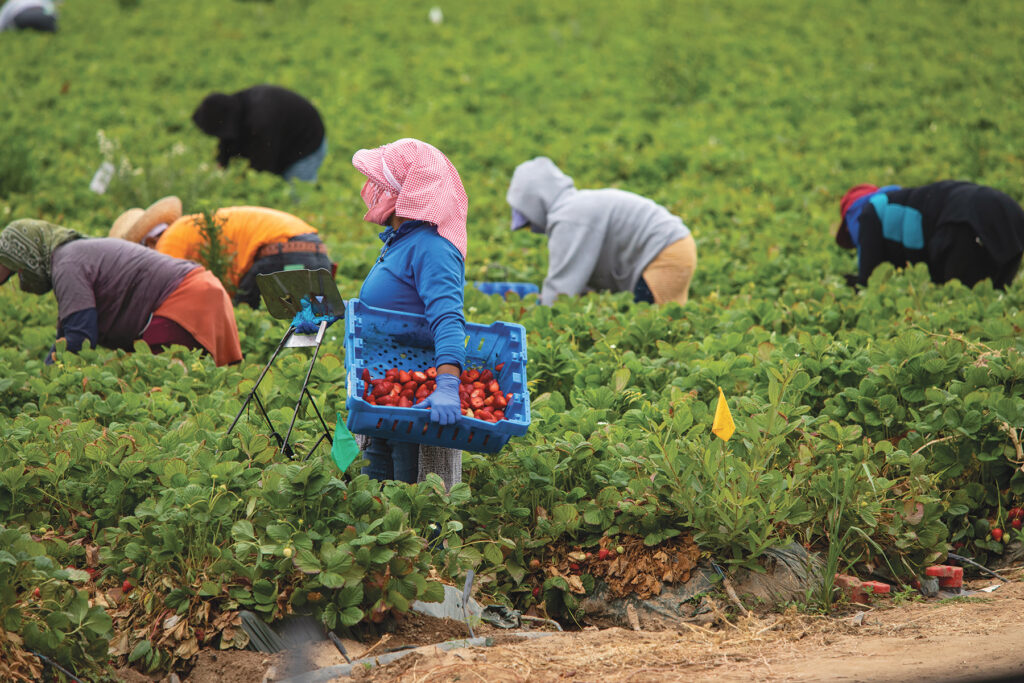
When I facilitate AVP workshops, I don’t come in as an expert on conflict but as a fellow traveler. Hearing others’ stories and finding they resonate with my own, I experience a great sense of aliveness and growth in the AVP space. Workshop attendees that day expressed their appreciation, so I suppose I was of help to them, though I mostly processed my own emotional history and the mental narratives that I had, mostly unwittingly, gathered and labeled as my “self.” This suffering that I experienced, I would find, wasn’t just about this “me” but was intimately connected to the lives and contexts of those around me. Despite finding their hearts “beating with hopes and dreams as true and high as mine” (as written by Lloyd Stone in the poem turned hymn “This is my song”), incarcerated people and I had come together in prison under very different circumstances. A trend became obvious. Incarcerated participants often had histories of poverty and material misery, and they experienced traumas that can accompany such conditions, conditions that contrasted greatly from my own upbringing. I grew up with everything I needed. The differences in poverty and wealth or the inequities in society that lead people to be incarcerated—strawberry fields or corporate boardrooms—mirror dynamics on the world stage. On a larger scale, rich and poor nations have their own histories of development or underdevelopment.
Eduardo Galeano elaborated on the economic histories pertaining to Latin America, the home or ancestral home to many of the farm workers in the Salinas Valley. He began his 1971 book Open Veins of Latin America with a stark description of such divisions:
The division of labor among nations is that some specialize in winning and others in losing. Our part of the world, known today as Latin America, was precocious: it has specialized in losing ever since those remote times when Renaissance Europeans ventured across the ocean and buried their teeth in the throats of the Indian civilizations.
Underdevelopment has its basis in power: who has power and who doesn’t, and how power is used. “Common sense” these days is to use what power one has to maintain and increase power. Imperial powers use their might to subjugate other peoples or, as Galeano describes, use economic might to enforce terms that continue the plundering. On a smaller scale, individuals who have money make investments to “make” more money. While seemingly innocent on the surface—at least as far as current legal structures go—the mechanisms through which this is done include realities in global supply chains that make exploitation possible. The recipe has been followed again and again. Countries’ markets are opened to Western capital, whether it be by the force of the gun (a famous example being China in the nineteenth century as a result of the Opium Wars, which led to what they call their “century of humiliation”) or by other means (a coup or other form of external pressure). If money is a form of power and a market opens to foreign capital, democratic decision making loses meaning and average people have less power over their lives and their communities. Whose economy is it? We might say “the economy” is doing well, but that often reflects the well-being of those with the most power rather than the bulk of the population. Respect for human rights and ecological health are also integral to the health of the “household” an economy comprises.
The differences in poverty and wealth or the inequities in society that lead people to be incarcerated—strawberry fields or corporate boardrooms—mirror dynamics on the world stage.
When George Kennan, the first director of policy planning for the U.S. State Department, died in 2005, the New York Times described him as “the American diplomat who did more than any other envoy of his generation to shape United States policy during the cold war.” Kennan wrote a 1948 report that clearly showed how decisions are made in the higher echelons of power in the United States, and then become disguised by the language of public relations. He wrote that the United States has “about 50 percent of the world’s wealth but only 6.3 percent of its population,” and advised that it should maintain this imbalance:
This disparity is particularly great as between ourselves and the peoples of Asia. In this situation, we cannot fail to be the object of envy and resentment. Our real task in the coming period is to devise a pattern of relationships which will permit us to maintain this position of disparity without positive detriment to our national security. To do so, we will have to dispense with all sentimentality and day-dreaming; and our attention will have to be concentrated everywhere on our immediate national objectives. We need not deceive ourselves that we can afford today the luxury of altruism and world-benefaction.
To borrow vocabulary from world-systems theory, the movement of wealth and resources from the world’s “periphery” to the “core” countries continues, where peripheral countries serve as resource colonies for the core, and through myriad economic devices, a relationship of dependency and power asymmetry is maintained.
It’s easy to think suffering doesn’t happen when we don’t see it. But we can see it. In the past, news of violence often gets garbled as if in a long game of telephone, where people whisper a message into their neighbor’s ear in a line and see how confused the message becomes at the end. The global game is mediated by people, organizations, and news media each with their own interests. More recently, people on the ground are able to upload videos to the Internet, more easily and directly sharing their experiences with those around the world, as is happening with the current suffering of people in Gaza. Thanks to the Internet, it’s more and more possible to see what is happening, and move toward others in this interconnected world.
A provocative thought experiment is to place ourselves in the past and think how we might have responded during those times. In Quaker lore, these times might be that of the early Friends or during the antebellum period in the United States. The fantasy is that we would have acted heroically, fully living out the values that we espouse. Whatever the case, the world we live in now is not much different than it was then. Tens of millions of people are living enslaved lives shrouded behind global supply chains. Slavery helps produce our clothing, our food, our technological devices. And then there are the myriad forms of exploitation that are a regular occurrence. There’s walking by the unhoused person on the sidewalk and driving by the people picking strawberries. If I were in a history class in the future, how might I fantasize that I acted now? Would I want to be the person who just walked by? Understanding how these relationships came to be is central to learning how to end them and to establish new kinds of relationships. I don’t write this in judgment of others or myself but to ask: What are the kinds of community we need in order to best live out our aspirations? How can we support individuals and communities to live in ways that aren’t accommodating to the status quo?
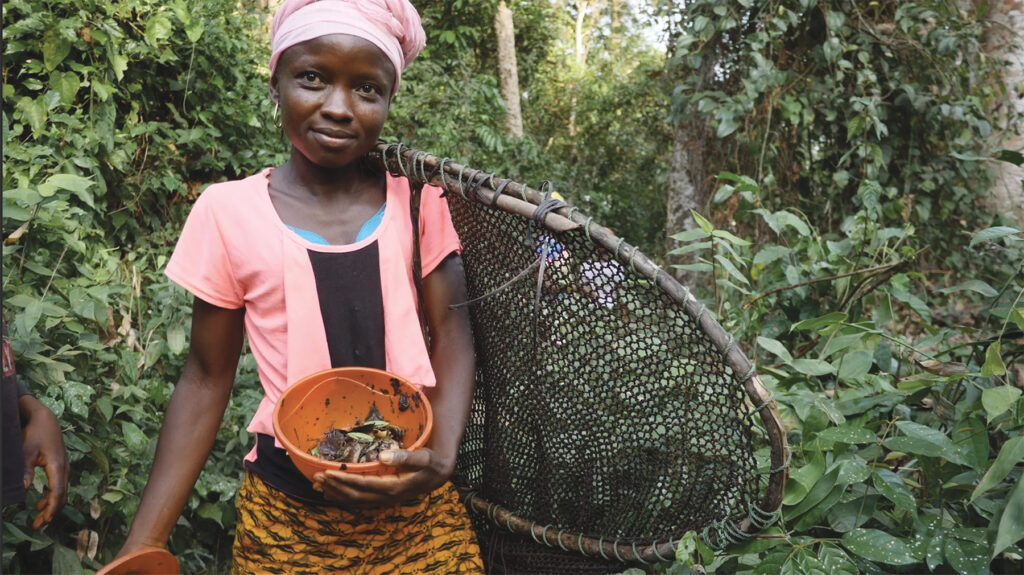
For me, it hasn’t been enough to engage economic relationships on an airy kind of spiritual basis that I used to believe: one that is disconnected from material realities. Individual-focused transformation and liberation are important but are incomplete without societal liberation. Nor is this just an intellectual undertaking. It has to be a journey, as Stephen Jenkinson put it on an episode of the End of Tourism podcast, of “translating what has been done in your name by your predecessors into a way of life that’s not self-serving and doesn’t prolong the dilemmas that have brought you to this crisis of conscience.”
AVP engages with power on the personal level through the idea of “Transforming Power”: practicing the skills that each of us has in order to change unhealthy relationships and behavioral patterns into healthier ones. Health, in this instance, might indicate mutually beneficial relationships that are fair and equitable. Working on ourselves affects our wider relations, such as our families and workplaces. Relations of power exist at these levels just as on the international level, depending on how decisions are made—if they are egalitarian or more authoritarian in structure—and who accrues the most benefits. Right sharing follows the testimonies and works with power on these levels: from establishing consensus decision-making practices in our communities and engaging with our governing institutions to challenge violence and exploitative practices to directly giving money and resources to those in need. The organization I work for, Right Sharing of World Resources (RSWR), follows the testimony of stewardship as it engages powers on a global level, supporting with grants those who are often most vulnerable because of the existing structure of global economic relationships.
Working with AVP and RSWR has been a meaningful, joyful way for me to engage with this crisis of conscience that characterizes our times. We have a clear way to help people’s lives, well-being, and destinies. It is readily evident with the farm workers sweating in the fields under the gaze of mansions perched on the adjoining hillsides. As a society, we’ve been bombarded with centuries of rationalizations and stories that normalize the current state of affairs. It’s understandable: we want the best for ourselves, our families, our communities, our countries. We use what power we have to help ourselves. But when we set out to benefit certain people without attention to the whole, others get left out. My parents wanted the best for me, which entailed love and care, and they also worked to set me up to more easily fit into a particular part of a global hierarchy of power. Through ignorance, we set the stage for some to live well and others to live poorly. Just as we can identify those forms and patterns of support on the familial level, we can also understand those patterns of relationships that play out on the global stage.
Through meeting with people inside prison walls and building community with them, the mental narratives that justify the status quo have slowly lost their power over me. RSWR, working toward right relationship (and thus change) within these structures, is transforming the material foundations of our societies by shifting the power dynamics of the world we live in. Mexican Friend Heberto Sein wrote in a 1976 Friends Journal essay titled “Toward a New World Order”: “Both rich and poor nations have respective roles to play in an enlightened, mutually beneficial process to create a new economic order. Right sharing is an essential part of that process.” How can we cultivate the clarity to see our present circumstances and discern skillful responses? Keep moving toward the suffering.


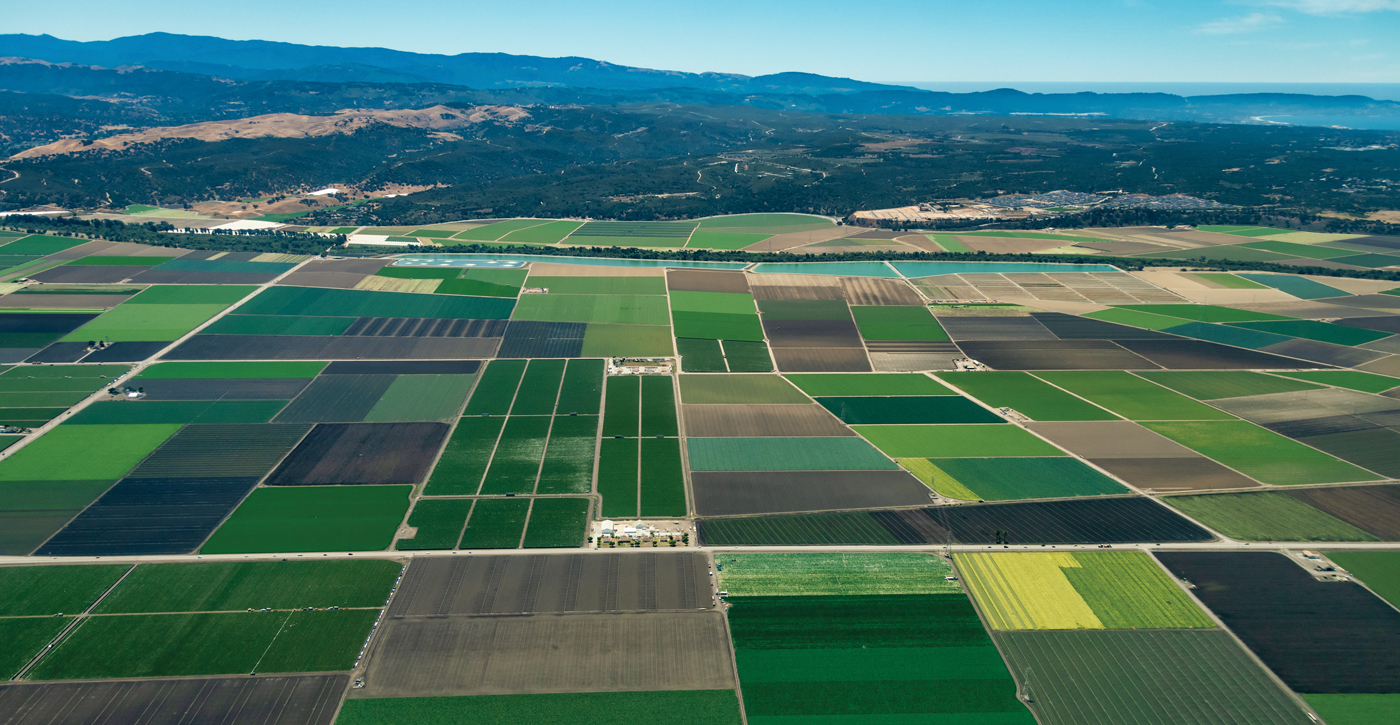
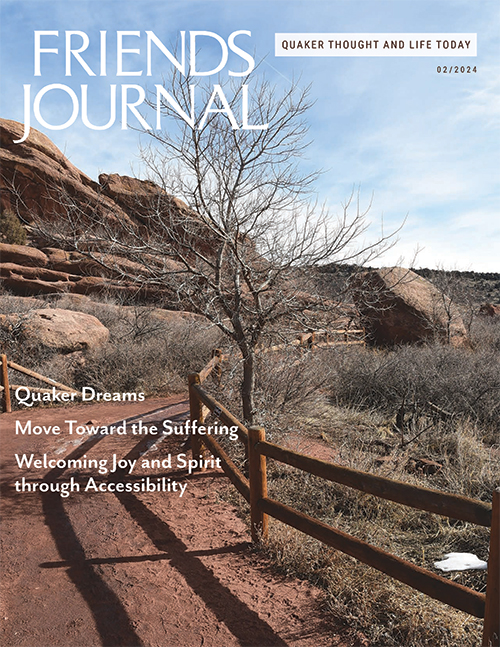
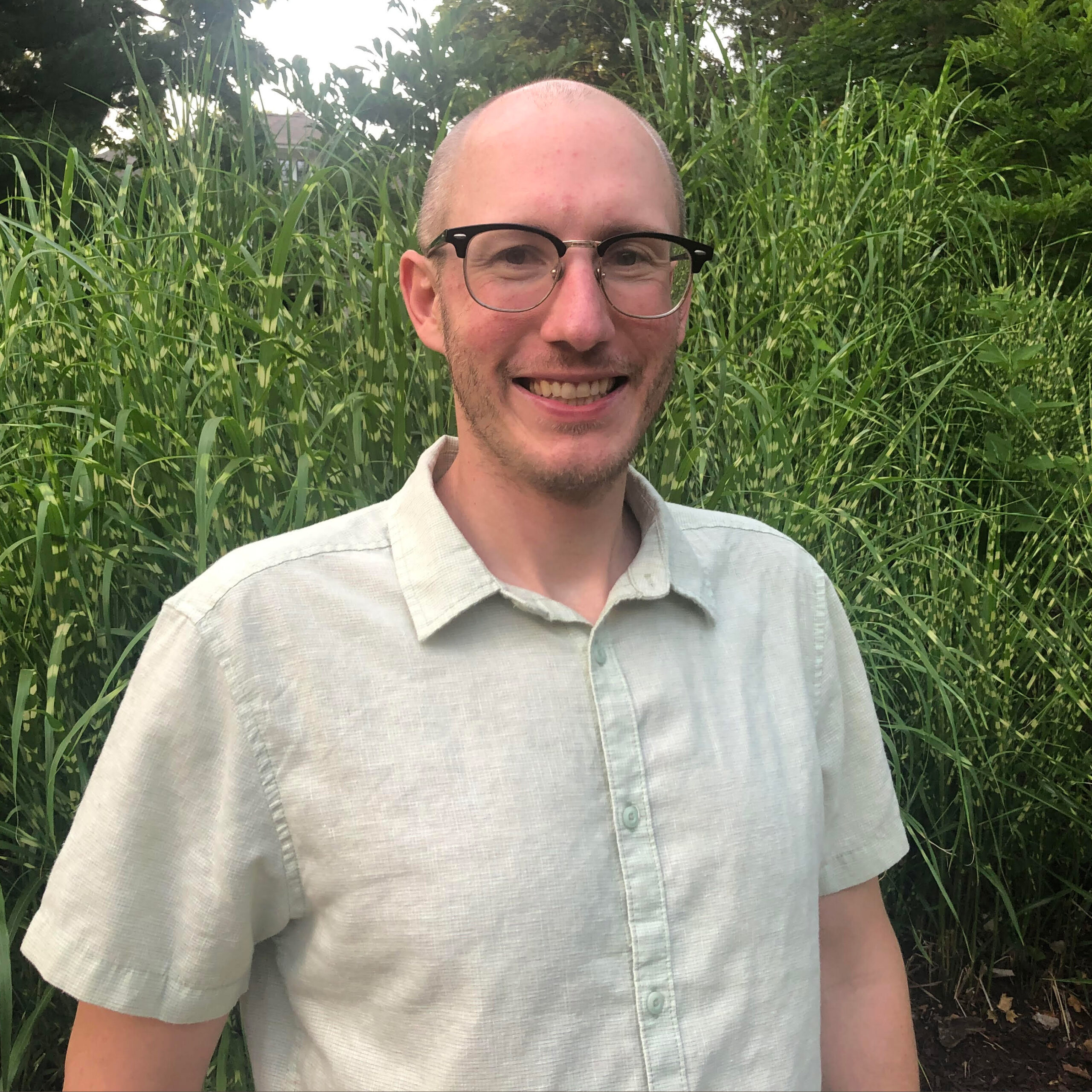
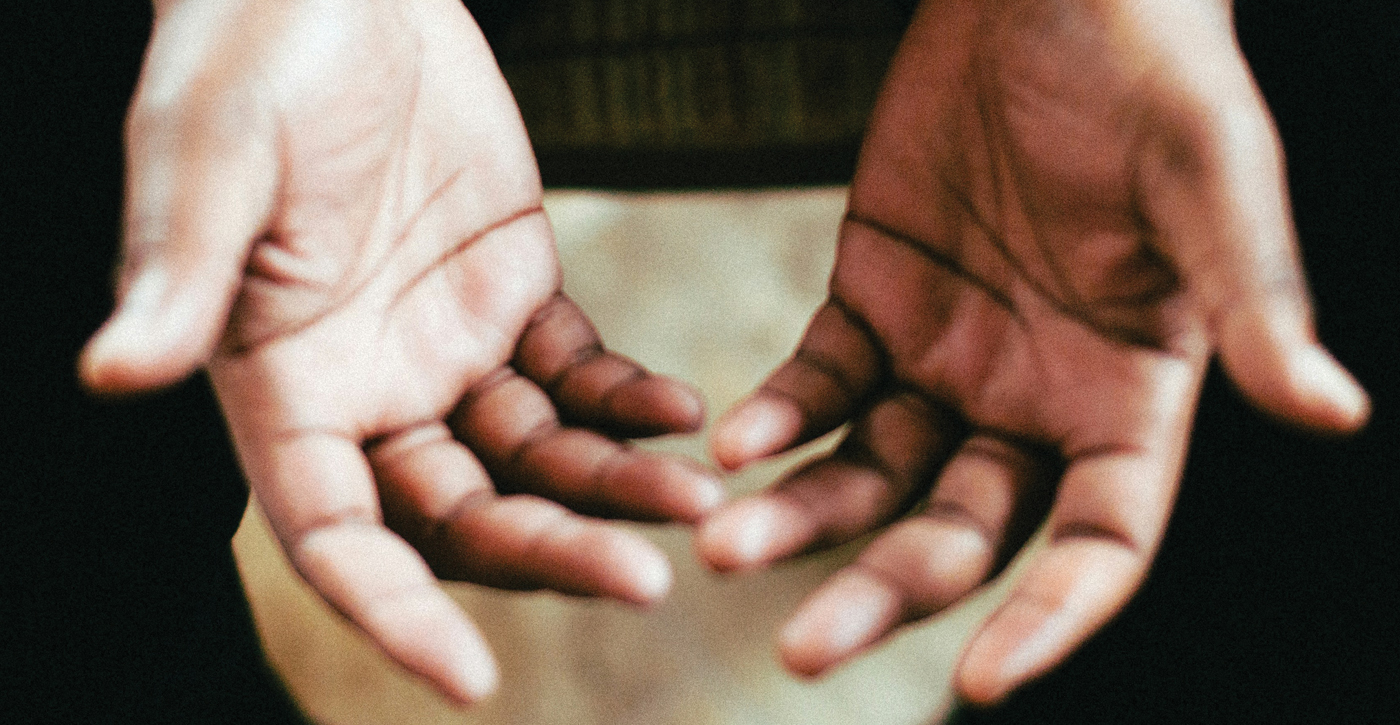
Capitalism certainly inspires selfishness and distant government provides social services to eliminate the need to feel personally responsible for those left behind. Yet, non-profits guided by disciples could do all the basic need work far more equitably and efficiently if out tax system inspired more charity support in exchange for less government taxes, which are often wasted on inefficient bureaucracy amplified by our winner-take-all (exclude everyone else) government power system.